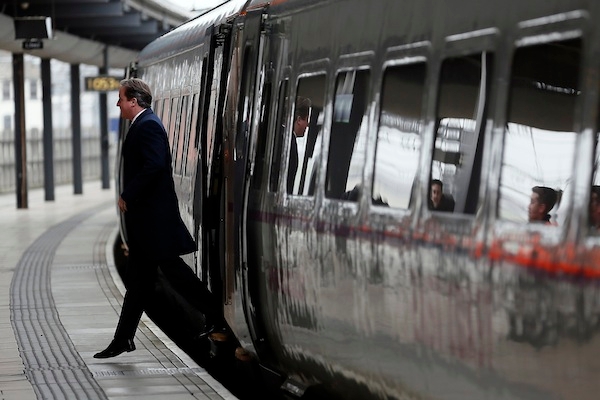Earlier this week the Major Projects Authority gave High Speed 2 an amber-red flag, informing the government that the project (along with the MoD’s two new aircraft carriers) is looking ‘unachievable’. To its detractors, the warning confirms HS2 remains little more than a pipe dream. In last week’s Spectator, Rory Sutherland bemoaned the 20-year time frame as reason enough to abandon the project and focus our energies somewhere more immediate.
But it didn’t have to be like this. HS2 remains in the doldrums thanks to a lamentable amount of faffing by the government. When the coalition came to power, most of the plans for HS2 were ready to roll. The planning powers to build the line — the crucial Hybrid Bill announce in this year’s Queen’s Speech — were not yet passed but there was little apparent cause for a three-year delay. Tories will be quick to point out that changes have been made to the plans, mostly in the form of extra tunnels, but on the whole the main route remains the same.
The Conservatives and Liberal Democrats took ownership of the project from Labour, stating in the coalition agreement their plans to ‘establish a high-speed rail network as part of our programme of measures to fulfil our joint ambitions for creating a low carbon economy’. If this had happened at the speed the then-transport secretary Lord Adonis bulldozed through the first swathes of red tape, the Bill would be well on its well through Parliament. Instead, the coalition has yet to even introduce it.
It now appears the HS2 Hybrid Bill won’t be introduced until the end of 2013, putting the first vote sometime in spring 2014 at the earliest. Just in time for those troublesome European/local elections that will fan the tensions between David Cameron and his party. Many of the Conservative grassroots movements, who are already very disgruntled with the same-sex marriage bill, will train their sights on killing off the Hybrid Bill. Expect another party-splitting vote, with significant pressure on MPs representing constituencies along the route.
David Cameron can always then take the easy option and delay an eventual vote on the second reading till after the 2015 election. Assuming the coalition is still wobbling along by this point, the Prime Minister will likely want to avoid any big fight. If the 2015 election does not swing in his favour, the next Conservative leader may very well turn against HS2 — to reunite the Tories, and fight Labour as the legislation heads towards Royal Assent. This would be a win for party unity, but another nail in the coffin of modernisation. HS2 was supposed to be a bold statement about Cameron’s intentions and ambition for the country. Instead, he may decide it is easier indefinitely delay the new line.






Comments